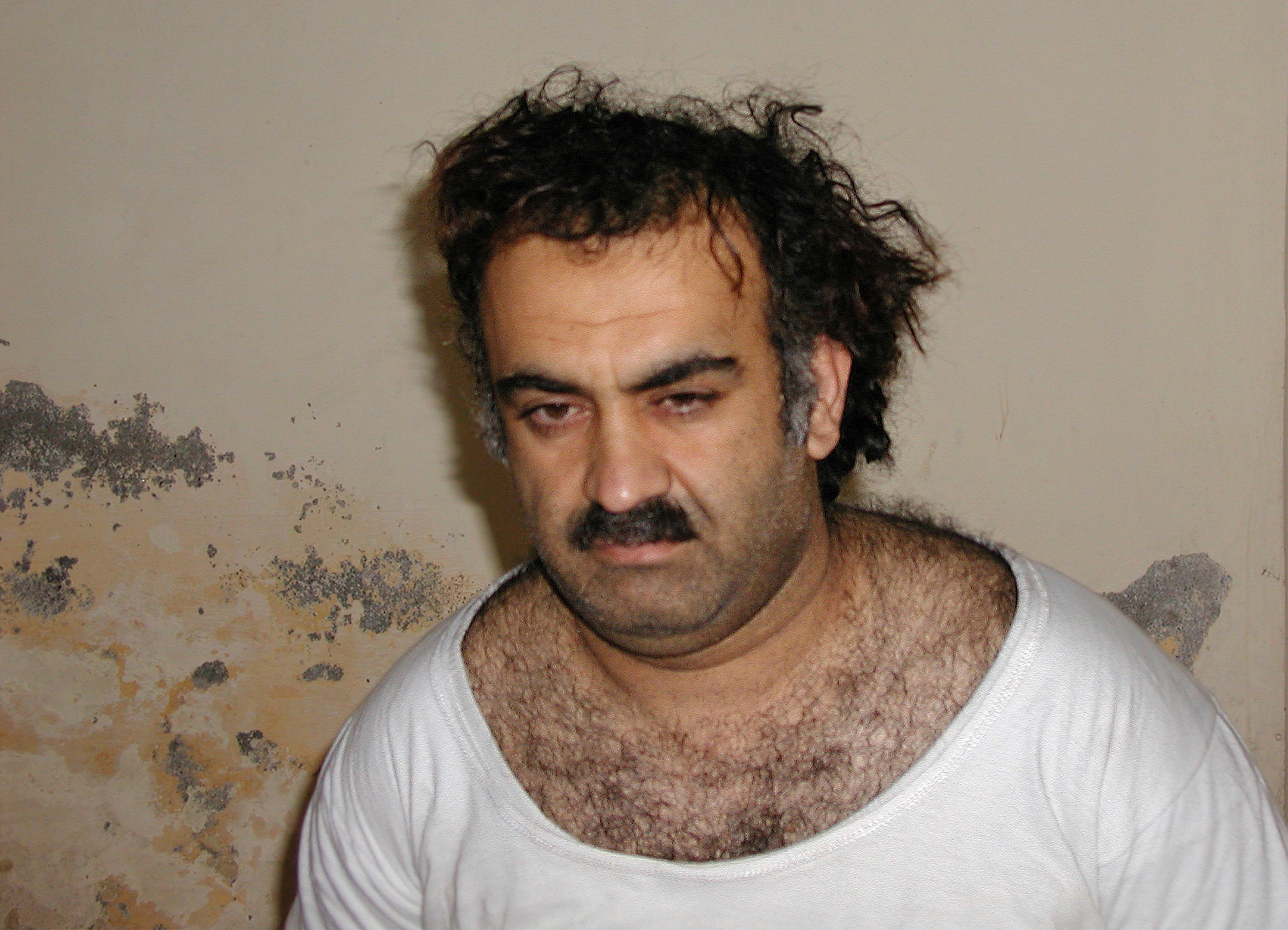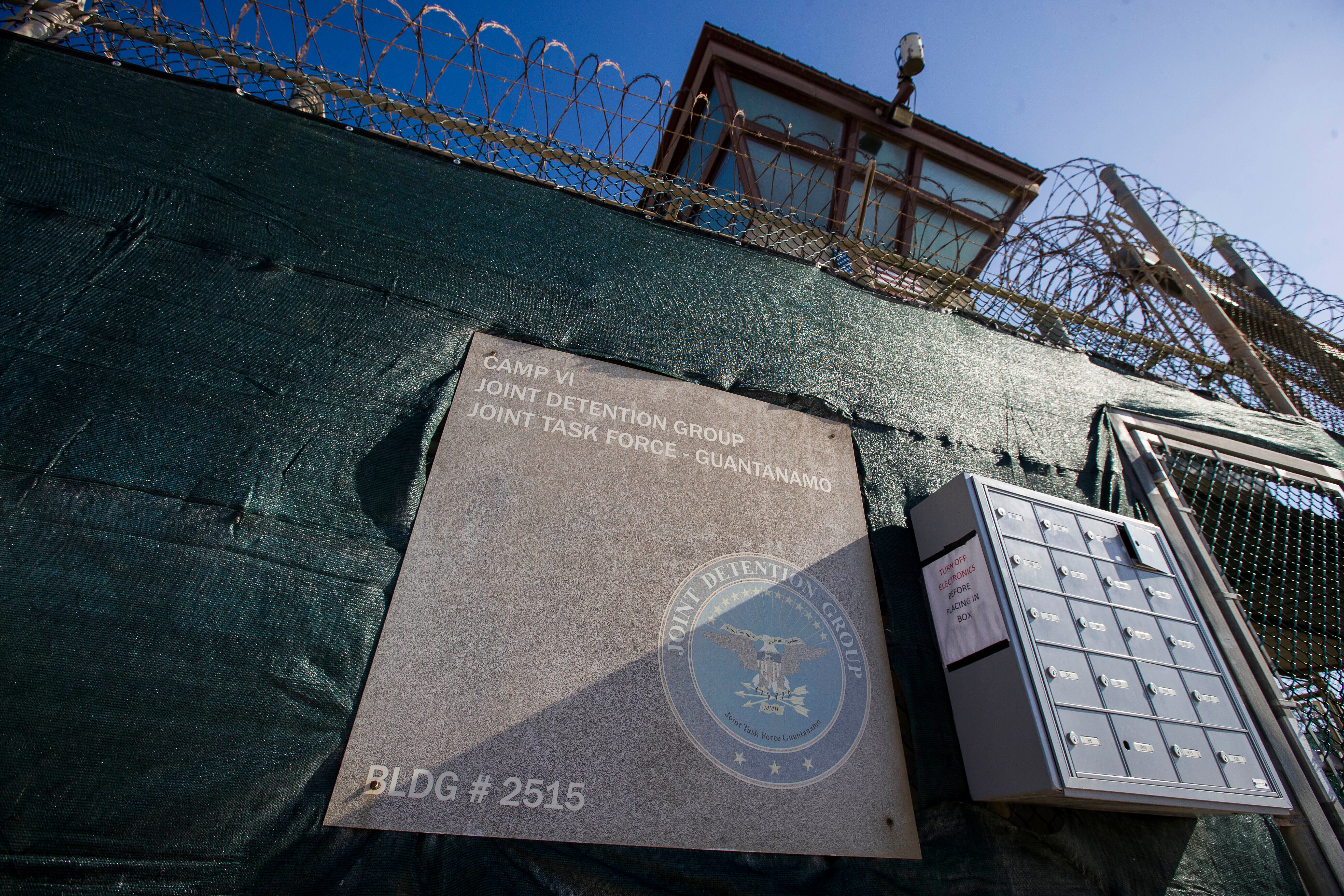Judge reinstates controversial plea deal for 9/11 masterminds after Pentagon chief tried to void it
The ruling means that the three 9/11 defendants before long could enter guilty pleas in the U.S. military courtroom at Guantanamo Bay

A military judge has ruled that plea agreements struck by alleged Sept. 11 mastermind Khalid Sheikh Mohammed and two co-defendants are valid, voiding an order by Defense Secretary Lloyd Austin to throw out the deals, a government official said Wednesday.
The official spoke on condition of anonymity because the order by the judge, Air Force Col. Matthew McCall, has not yet been posted publicly or officially announced.
Unless government prosecutors or others attempt to challenge the plea deals again, McCall's ruling means that the three 9/11 defendants before long could enter guilty pleas in the U.S. military courtroom at Guantanamo Bay, Cuba, taking a dramatic step toward wrapping up the long-running and legally troubled government prosecution in one of the deadliest attacks on the United States.
The plea agreements would spare Mohammed and two co-defendants, Walid bin Attash and Mustafa al-Hawsawi, the risk of the death penalty in exchange for the guilty pleas.
Government prosecutors had negotiated the deals with defense attorneys under government auspices, and the top official for the military commission at the Guantanamo Bay naval base had approved the agreements.
The plea deals in the Sept. 11, 2001, al-Qaida attacks that killed nearly 3,000 people spurred immediate political blowback by Republican lawmakers and others after they were made public this summer.
Within days, Defense Secretary Lloyd Austin issued a brief order saying he was nullifying them. Plea bargains in possible death penalty cases tied to one of the gravest crimes ever carried out on U.S. soil were a momentous step that should only be decided by the defense secretary, Austin said at the time.
The agreements, and Austin's attempt to reverse them, have made for one of the most fraught episodes in a U.S. prosecution marked by delays and legal difficulties. That includes years of ongoing pretrial hearings to determine the admissibility of statements by the defendants given their years of torture in CIA custody.
The Pentagon is reviewing the judge's decision and had no immediate further comment, said Maj. Gen. Pat Ryder, Pentagon press secretary.
The New York Times first reported the ruling.

Military officials have yet to post the judge's decision on the Guantanamo military commission's online site. However, a legal blog that long has covered the prosecutions from the Guantanamo courtroom said McCall's 29-page ruling concludes that Austin lacked the legal authority to toss out the plea deals.
The ruling also calls the timing of Austin's move "fatal," coming after Guantanamo's top official already had approved the deals, according to the blog, called Lawdragon.
Abiding by Austin's order would give defense secretaries "absolute veto power" over any act they disagree with, which would be contrary to the independence of the presiding official over the Guantanamo trials, the law blog quotes McCall as saying in the ruling.
While families of some of the victims and others are adamant that the 9/11 prosecutions continue until trial and possible death sentences, legal experts say it's not clear that could ever happen. If the 9/11 cases ever clear the hurdles of trial, verdicts and sentencings, the U.S. Court of Appeals for the District of Columbia Circuit would likely hear many of the issues in the course of any death penalty appeals.
The issues include the CIA destruction of videos of interrogations, whether Austin's plea deal reversal constituted unlawful interference and whether the torture of the men tainted subsequent interrogations by "clean teams" of FBI agents that did not involve violence.
Join our commenting forum
Join thought-provoking conversations, follow other Independent readers and see their replies
Comments
Bookmark popover
Removed from bookmarks